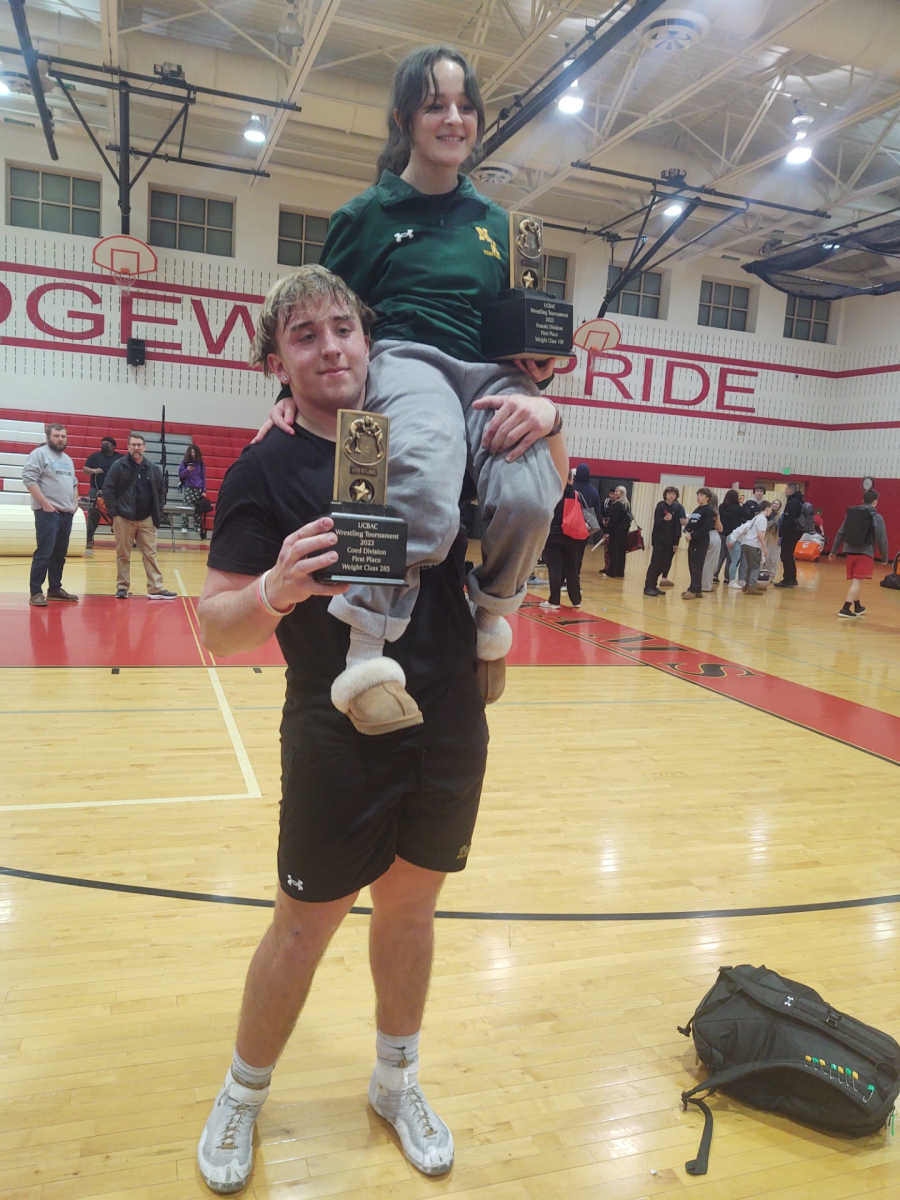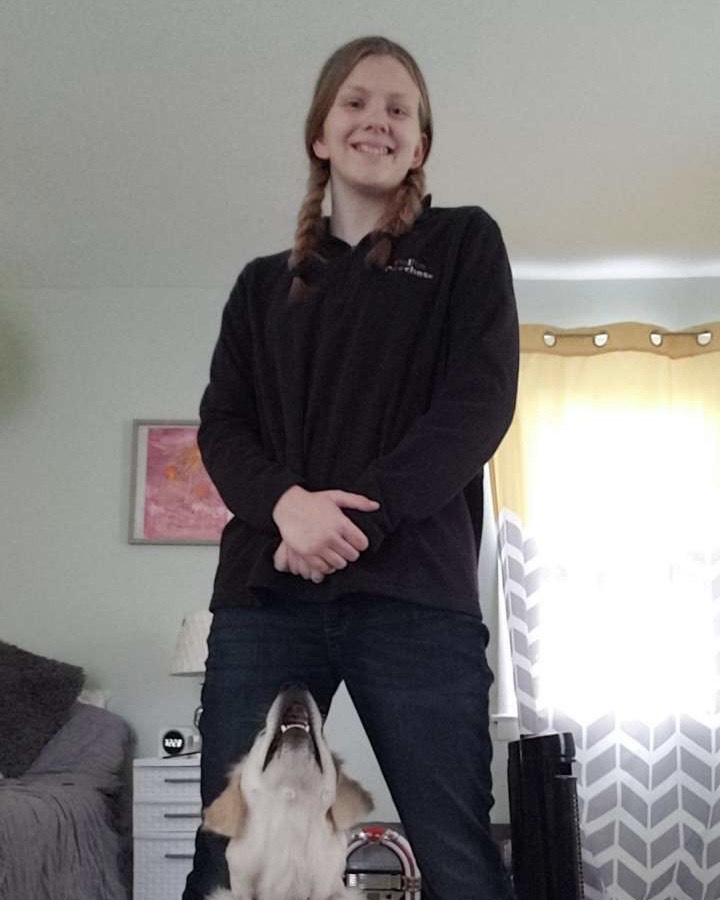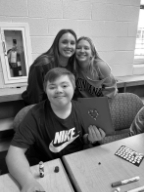Student spends free time training; Volunteering to teach dogs
Junior Stephanie Erisman posing in her volunteer uniform for Polite Pooches with her dog Harper. Erisman volunteered at Polite Pooches because she loves dogs and considered dog training for a future career.
October 12, 2021
“The place I volunteer is positive reinforcement, which means we show the dog what to do instead of teaching them just what not to do,” says junior Stephanie Erisman. Erisman volunteers at Polite Pooches, which is run by a certified fear free trainer, Kathy Forthman.
Erisman explains that negative reinforcement includes but is not limited to, “shock collars, prong collars, smacking the dog, yelling or scaring the dog.” Erisman adds that negative reinforcement can cause behavior issues and even physical injuries to the dog. According to The Spruce Pets, “Positive reinforcement allows you to communicate clearly with your dog. You decide what you want your dog to do and let it know by offering rewards when the dog does the desired action.”
At Polite Pooches if Forthman cannot help your dog, she will recommend a behaviorist or anyone else that can help. “She [Forthman] has group classes and private, the group classes are puppy class (for 10-16 weeks), basic obedience (any non-reactive dog over four months), and intermediate obedience (any dog that has successfully completed basic obedience),” says Erisman.
The puppy class teaches dogs their name, sit, down, come, touch, all the early stuff according to Erisman. Gallant confirms that these commands are the most common and easiest commands to teach a dog. “There is also off leash play time based on the size and play style of the puppies. At the end of each class, we work on different things like grooming, interactive feeding or discuss topics such as potty training,” says Erisman.
In the basics class, dogs will learn things like sit, down, come, and loose leash walking according to Erisman. The intermediate class practices items for the CGC (Canine Good Citizen) test and on the last day an evaluator can come in to test the dog if they wanted. “The AKC (American Kennel Club) is an organization that sets standards for dog breeds, they give out the CGC awards,” says the junior. On the CGC test there are 10 things that the dog needs to be able to do in order to pass. Things like being groomed, walking on a loose leash, supervised separation for three minutes, coming when called from 15 feet, stay while the owner walks away 10 feet, states Erisman.
“I first went here [Polite Pooches] when I first got my golden retriever last year, we did the puppy class, basic and intermediate. During the basic class, Harper, my puppy, was doing so well Kathy asked me if I would want to help with classes,” describes the junior. Erisman is considering being a dog trainer in the future, and she said she “ began helping with puppy classes in Oct. of 2020, a couple weeks ago I started helping with intermediate classes instead of puppy classes.”







